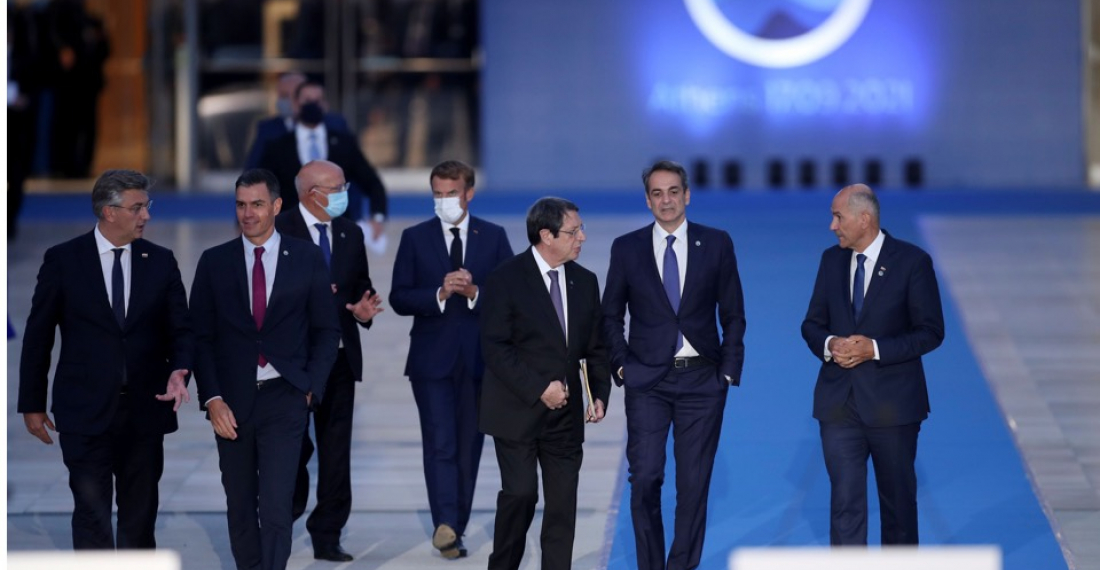Leaders of the EU Mediterranean countries met in Athens on Friday to discuss climate change and regional security. The summit of southern EU states was established in 2016 by Cyprus, France, Portugal, Greece, Italy, Malta and Spain. This year, Croatia and Slovenia joined for the first time to discuss issues ranging from the pandemic response to migration and the crisis in Afghanistan. There was also a session with European Commission president Ursula von der Leyen on security in the region, while the Greek government highlighted the need for joint action when it comes to green goals.
Climate change and its effects on the region was high on the agenda after this summer saw devastating forest fires sweep the region. Greece was particularly badly affected, with the country’s worst heat wave in decades fueling hundreds of wildfires that stretched its firefighting resources to the limit and saw it appeal for international help.
The Greek prime minister, Kyriakos Mitsotakis, blamed the fires on climate change, and has promised to make tackling what he has described as a climate crisis one of his government’s main priorities.
Migration was another main topic of discussion, with Greece, Italy, Spain and Malta lying on the major routes smugglers use to get people into the European Union.
In a joint statement, the leaders said that the Mediterranean was now suffering “unprecedented ecological damage and response capabilities are being stretched to the limit.”
“Such vulnerability is going to increase due to the accelerating impacts from climate change in the region leading to losses in welfare in terms of economic impacts due to climate change,” the statement said.
Apart from the central issue of climate, the summit also discussed the coronavirus pandemic, as well as security in the Eastern Mediterranean. Particular importance was attached to the ability of the countries of the South to shape their positions together on key issues, which can also be a driving force for decisions at the European Council level.







